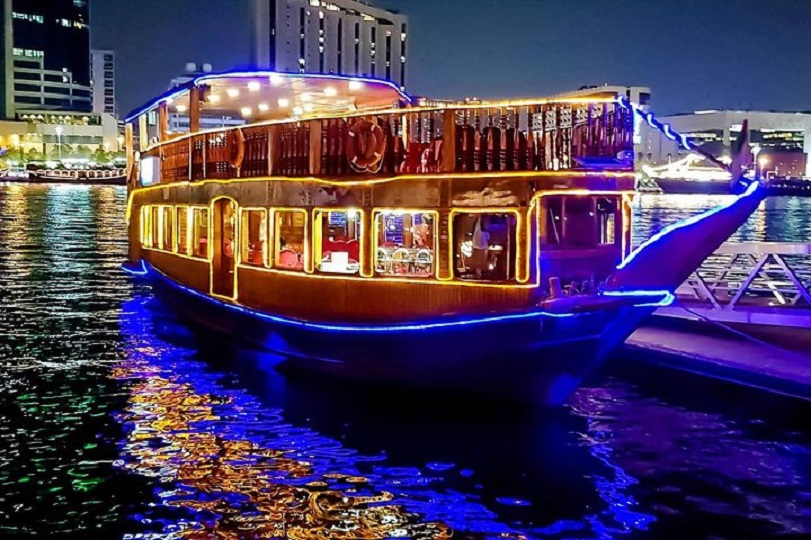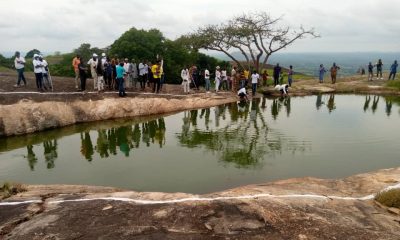Travel/Tourism
Tourism Doesn’t Just Boost Economies, it Can Also Foster Peace and Equity
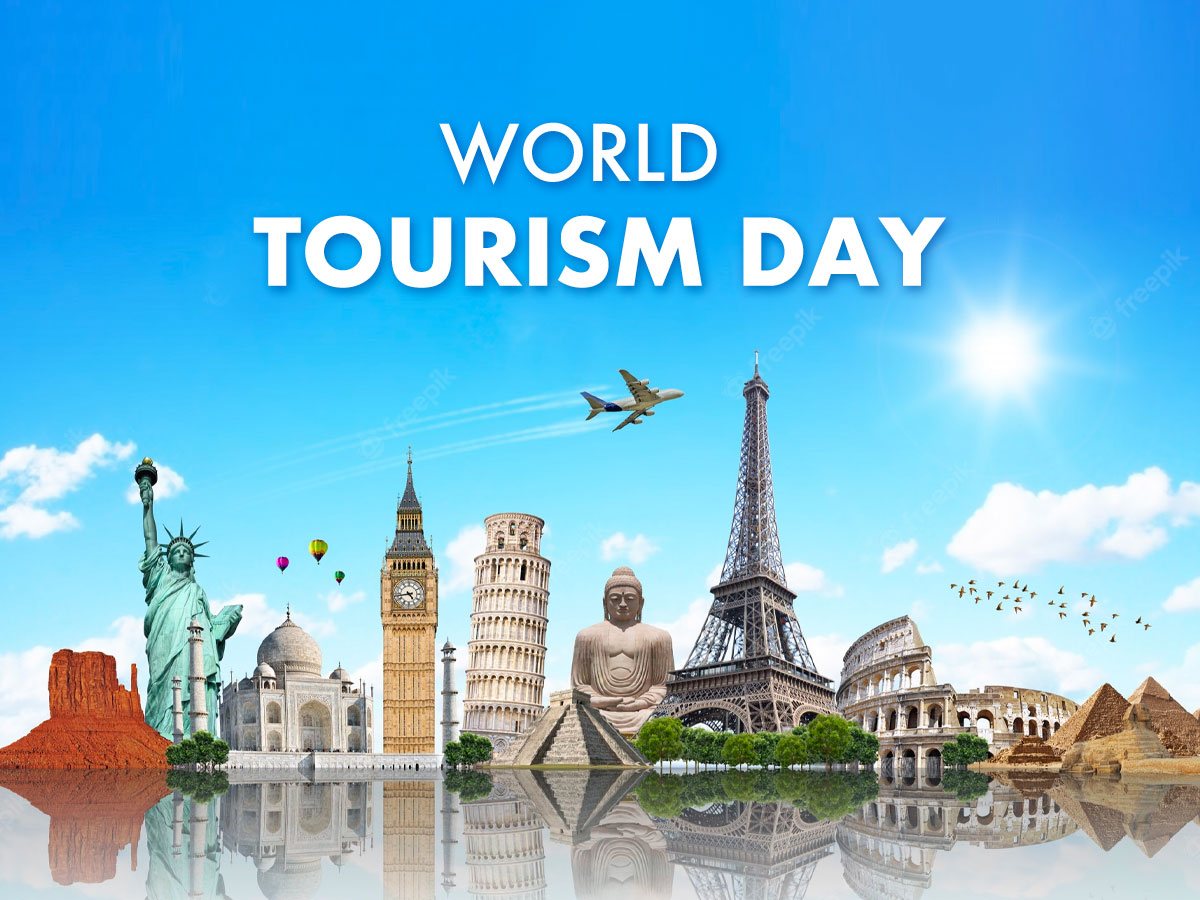
With anti-tourism protests erupting in major cities around the world, including Barcelona, Venice, and Athens, it would be all too easy to believe that tourism has become an area of contestation rather than an economic force for good. Dig into the complaints of the protestors – including a reduction in affordable housing, anti-social behaviour, and poorly regulated labour markets, and that belief could become even more entrenched.
But as vocal as anti-tourism protests have been, particularly in Europe, there is still overwhelming evidence to show that the sector remains a net positive. Not only does it provide economic benefits, but it can actually foster peace and equity.
In order for that to happen, however, players within the hospitality sector must play their part too. A key component of that is ensuring that they’re putting out the right kind of messaging to the right audiences.
Fostering peace
A research report compiled by the Institute for Economics and Peace (IEP) for the World Travel and Tourism Council (WTTC), for example, found a correlation between peace and tourism. According to the report, the strongest links are between sustainable tourism and what it labels Positive Peace (a concept which can broadly be defined as the societal structures, attitudes, and institutions which create and sustain peace within societies).
For an example of how sustainable tourism can promote positive peace, it’s worth looking at a country like Rwanda. As Vision of Humanity points out, government efforts to clear landmines, conserve wildlife, and promote gorilla trekking have helped it build a tourism industry. That, in turn, means that visitors to the country come away with a completely different view of Rwanda and Rwandans.
Not only does this kind of sustainable tourism encourage people to be more tolerant of others, it also incentivises governments to be more welcoming of international visitors. Additionally, it can result in improved information flows both within a country and across borders. It may even aid cross-border relations with neighbouring countries as they see the benefits and take similar approaches themselves.
Promoting equity
Properly implemented tourism programmes can also improve equity within countries. Job creation and economic opportunities are probably the most obvious ways they can do so, but tourism promotes equity in other ways too.
Increased tourism revenue can, for example, lead to better infrastructure, such as roads, public transportation, and amenities that benefit the entire community. It can also incentivise the preservation of local cultural heritage, which can strengthen community identity and pride.
Tourism can also provide opportunities for young people and women that they might not otherwise have. The same is true for indigenous communities, who will be better placed to preserve their traditions and generate income through cultural tourism initiatives.
Messaging matters
As important as tourism can be for fostering peace and equity, it cannot do so without effective communication and messaging.
“Whether you’re looking to grow tourism numbers or manage relations in an established tourism market, communication is essential,” says Rachel Irvine, CEO of creative communications firm Irvine Partners, which has represented numerous tourism and hospitality groups including Mariott, Raddisson, and BON Hotels. “But it’s especially important if you’re looking to build the kind of tourist environment that fosters peace and justice.”
As she points out, the kind of communication required from stakeholders is multi-faceted.
“Tourism stakeholders looking to take this approach can’t just afford to market to their ideal customer base and hope for the best,” she says. “That just screams the kind of exclusionary tourism that ultimately creates societal problems. Instead, tourism stakeholders must communicate effectively and transparently with local communities. In doing so, they must remember that communication is a two-way exercise and establishing feedback from locals can help identify areas for improvement and address any negative impacts of tourism.”
Communication, she points out, can also be effective in educating visitors about how they can move through tourism destinations in ways that are sensitive to locals.
“Most destinations won’t have to go as far as Amsterdam’s “stay away” campaign,” Irvine says, “but by recognising that they are the conduit between visitors and locals and communicating as such, they can play an important role in ensuring that hospitality continues to be viewed as a net positive.”
Find the right messenger
Of course, striking that balance isn’t always easy, but as Irvine points out, it can be made a lot easier by ensuring that you have the right communications partners onboard.
“A seasoned communication partner with local knowledge and expertise will go a long way to ensuring that you’re viewed as the kind of tourism stakeholder that encourages and helps foster peace and equity,” she says. “Moreover, they’ll be able to help ensure you communicate that intent with actions as well as words.”
Travel/Tourism
UK to Issue Digital Visas to Nigerian Travellers from February 25
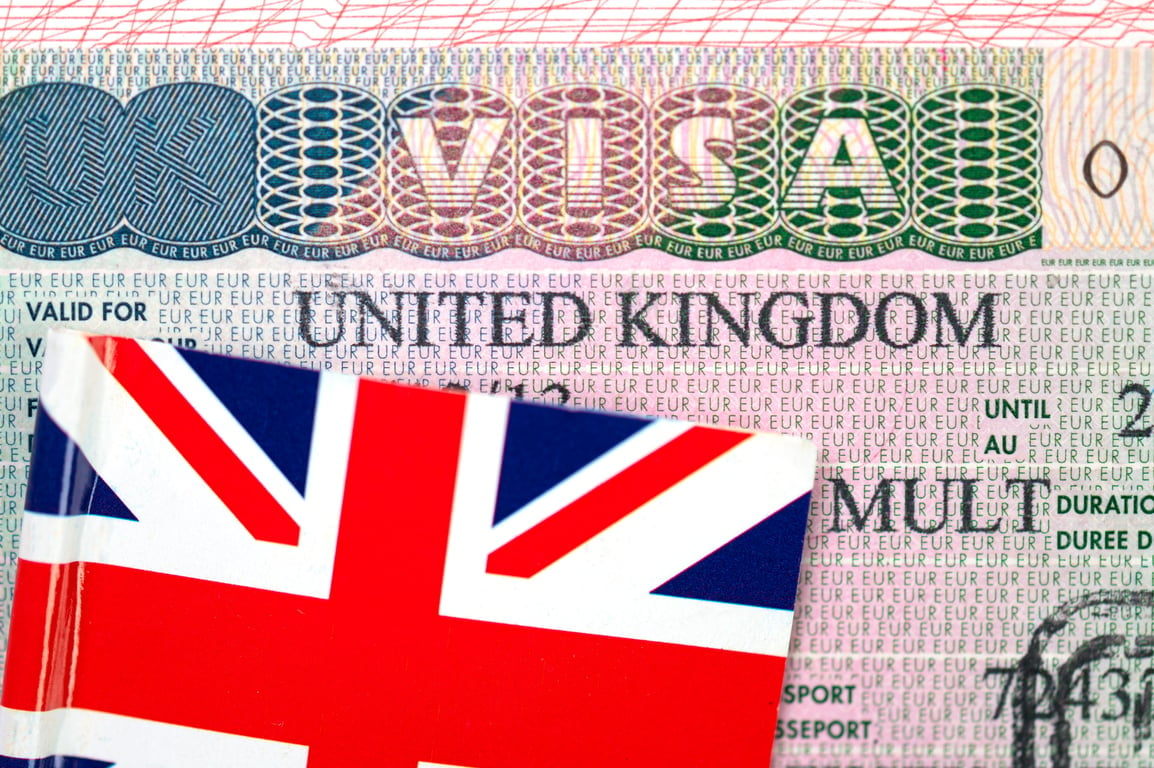
By Adedapo Adesanya
The United Kingdom says all Nigerian visitors to the country, who need a visa, will only get a digital visa from February 25, 2026.
In a statement, the UK Visas & Immigration said that from the scheduled date, all Nigerian nationals applying for a UK Visit visa will receive an eVisa, rather than a vignette (sticker) in their passport.
The shift also indicates that travellers will access their visa electronically through their UK Visas and Immigration (UKVI) account, marking a significant step in modernising the UK’s visa process.
For Nigerian applicants, the visa application requirements remain unchanged. Travellers will still apply as usual, attend a Visa Application Centre to provide biometric information, and meet all existing eligibility criteria. The only difference is how the visa is issued: instead of a physical sticker, applicants will receive a secure digital record of their immigration status.
According to a statement, the British government clarified that Nigerians currently holding a valid vignette sticker do not need to take any action. Their physical visa remains valid until it expires or requires replacement.
It added that the move to eVisas brings a number of benefits for Nigerian travellers, including passports being returned more quickly and travellers being able to manage their immigration status online at any time, from any location. The digital format offers stronger security as eVisas cannot be lost, stolen, or tampered with.
Welcoming the transition, British Deputy High Commissioner in Abuja, Mrs Gill Lever, said, “We are committed to making it easier for Nigerians to travel to the UK. This move to digital visas will streamline a key part of the visa process, making it more secure while reducing dependence on paper documents. We look forward to continuing to welcome Nigerian visitors, students, and workers to the UK.”
Once a visa is approved, applicants will need to create a free UKVI account to access the eVisa.
Travel/Tourism
Russia Facilitates Travel, Tourism for Africans
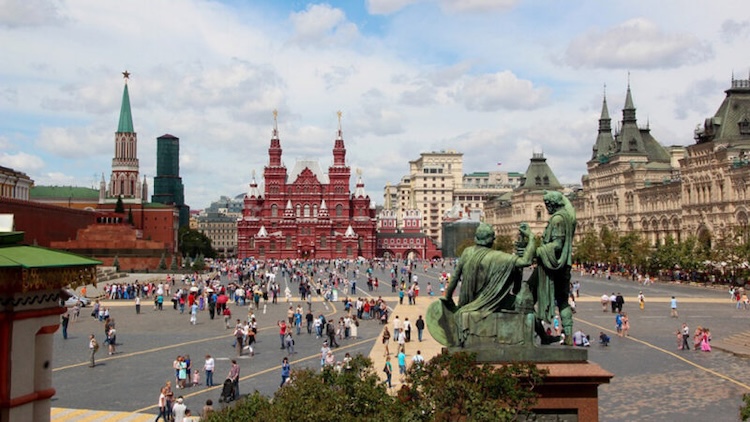
By Kestér Kenn Klomegâh
Russian Foreign Minister, Sergey Lavrov, has reiterated the official statement on expanding visa-free travel between Russia and Africa, signaling Kremlin’s earlier position on facilitating people-to-people movement and raising cultural interaction. The question of ‘visa-free’ travel and tourism dominated discussions during the first and second Russia-Africa summits, as a step to embrace new bilateral relations and soft-power diplomacy with Africa.
While ‘visa-free’ travel could be interpreted as a potential driver for boosting tourism business, Sergey Lavrov’s definition limited this policy only to ‘Africans holding diplomatic passports’ and largely excludes political elites and business executives looking to develop entrepreneurial connectivity to Russia. The broader ambition is to focus on Africa’s middle class, estimated at 380 million envision as the constituting a huge tourism market, which is twice Russia’s population.
The Russian Ministry of Foreign Affairs has further underlined the fact that the implementation of a ‘visa-free regime’ with all African countries aims at strengthening cultural relations with the continent. That announcement filled the local Russian media from Moscow to Vladivostok. Later, the Ministry clarified that the ‘visa-free regime’ for African countries was still under serious review. Diplomatic talks with various countries on the drafts of visa-free travel agreements were underway at different stages, as each had its specific requirements. There was a need to categorise African countries into groups.
This initiative is within the framework of the Joint Action Plan (2023-2026) adopted at the second summit in St. Petersburg. From investigations, Russia has ‘visa-free agreements’ with only six African countries. The visa-free regime only applied to African countries that signed agreements with the Foreign Ministry. Within the agreements, only holders of diplomatic passports are permitted under this consular agreement. According to sources monitored, agreements would be signed after successful negotiations with Russian authorities.
The Head of the Russian Foreign Ministry’s Consular Department, Alexey Klimov, explained in an interview with local Russian media: “Russia is currently working out travel agreements on abolishing visa requirements and providing visa-free entry for short-term trips, usually up to 90 days, with several friendly states, nine of them being the countries of Africa and the Middle East.”
“As always, we will immediately inform the public about the concrete results achieved and embodied in documented bilateral agreements,” Klimov concluded, the full transcript posted on the official ministry’s website.
With the changing times, Russia has been pursuing an integrative, multipolar approach in its relations with friendly countries around the world, including those in Africa. During these past few years, Asian countries, such as China and India, have been granted such short-term visa-free privileges. In practical terms, this policy boosts tourism. It is noticeable that Russia remains a holiday destination for Africa’s political elite, corporate business leaders, and the middle class. But undoubtedly, African politicians and corporate business leaders highly prefer to spend their vacation in the United States and Europe. Some Asian destinations are becoming increasingly popular as a preferred choice for recreation. That trend is unlikely to change; it will remain as such for the next few decades.
Tourism topic at Russia-Africa summits
Following the Russia-Africa summits, both Russia and Africa adopted joint declarations—in fact, comprehensive documents that outline various parameters for elevating cooperation to a new qualitative stage.
Tourism is one of the most highly praised spheres during discussions. Brilliant speeches called for the frequent exchange of cultural groups and the taking of comprehensive measures to promote a broad scope of cultural and tourism collaboration between Russia and Africa.
Ultimately, to boost compelling economic interests and foster cooperation, frequent interactions are necessary. The frequency of interaction should not be limited to summits and conferences alone. Some basic strategic steps and measures are also required to encourage simple holiday travels to both regions.
These are significantly missing in the current relations between Russia and Africa. Critics often argue that Russia is contributing considerably to its so-called isolation by closing its doors, especially when there are considerable opportunities to develop high-quality tourism. The African elite could visit Moscow, St. Petersburg, and coastal cities, including Sochi, as well as along the Volga River.
Indeed, playing with flexible visa regimes will not only promote tourism and strengthen cultural ties, but also, in practical terms, will build positive perceptions and further help to neutralise a high level of Western media disinformation across the continent. There is a need to adopt a pragmatic approach to these crucial questions and carefully examine social aspects to enhance people-to-people interactions.
Notably, Russian officials consider visits by heads of African states and ministers to be an essential pillar of their version of building relations in the anticipated multipolar world.
With the current geopolitical situation, Africa’s middle class, estimated at 380 million (twice the population of Russia), has suitable alternative holiday destinations. For now, Moscow and St. Petersburg are not their desired priority for spending vacations. Russian tour operators acknowledge, in a media query with this article’s author, that there is no bilateral entrepreneurial activity between Russia and the African tourism sector. However, on the other hand, African destinations such as Egypt, Morocco, the Maldives, Seychelles, South Africa, and Zanzibar are popular among Russian vacationers.
Most often, Russian and African experts have been discussing how best to promote exchanges of delegations, explore untapped resources, and explore the possibilities of boosting cooperation in the field of tourism, as well as the dissemination of information on tourism opportunities in the Russian Federation and African States.
Over the past few years, the summit declarations have remained tacitly as declarations. In practical terms, the visa-free regime for African countries has mainly remained as official declarations. The fundamental question often asked is for what purposes the summit declarations are made.
Current Tourism Challenges
Russian experts say Chinese, Indians and many Asians are the real potentials, taking advantage of the emerging opportunity to travel to Russia, more than Africa’s middle class and entrepreneurs. In addition, Africa is currently assessed as “reawakening to geopolitical changes” and less capable of taking their own development initiatives based on the huge resources on the continent.
The continent’s challenges still existed. Notwithstanding that, Africa is seemingly moving from the periphery toward the negotiating table. With tourism, engagement remains weak and fragmented. In comparison, in African and Asian tourism, that distinction matters. Africa has a demographic advantage, but the dynamics of tourism perceptions are low.
In the sense of uplifting bilateral partnerships, especially during this time at the heightening of geopolitics, Africa is not simply a reliable partner but has to be treated as such for operating at the tourism development scale. The future of the relationship can be an extremely positive lever, and to take important steps for mapping out diverse ways for its sustainability and expansion. Less arguably, Africa’s political leadership and business executives have explicitly understood the criticality of Russia’s ‘visa-free’ regime, as one of the most geopolitical rhetoric in the contemporary era.
Multifaceted relations with Russia
Russia is ready to build multifaceted relations with Africa. “If Russia Wins, Africa Wins!” remarked Azali Assoumani, President of Comoros, during the late July St. Petersburg summit plenary session in 2023.
With hopes for an enduring collaboration on long-term programs, the Secretariat of the Russia-Africa Partnership Forum was created. And it has since been networking, intending to promote Russia’s economic interests in Africa and to foster mutually beneficial cooperation with African countries.
The Director of the Department of Partnership with Africa of the Russian Foreign Ministry, Tatiana Dovgalenko, in an interview with the TV BRICS channel on July 9, 2025, emphasised that the importance of her new department is its functionality—focus on the comprehensive, integrated development of relations between Russia and the entire African continent, which are experiencing a genuine revival today. It implies that the main task is to implement the decisions which cover a wide range of cooperation areas, including culture and tourism.
While Russian officials focus on their work aimed at increasing Russian presence in Africa, the role of Africa in the Russian Federation is vastly underestimated. At these changing times, officials have to necessarily note with mutual interest the economic presence of Africa, beyond just training students, in the Russian Federation. And, of course, promoting African tourism is not only a promising niche but also a unique pathway for sustaining bilateral cooperation.
Still on the topic of bilateral tourism, Tatiana Dovgalenko rightly pointed out that more active participation by representatives of the African tourism industry in various events in Russia, along with the introduction of visa-free travel to African countries, would help increase the tourist appeal of Africa. Within the Action Plan of the Russia-Africa Partnership Forum for the period 2023-2026, it is anticipated that both Russia and Africa will hold constructive positions on mutual bilateral ties in this emerging multipolar world.
Travel/Tourism
FAAN Launches Energy Efficient Shuttle to Support Abuja Airport
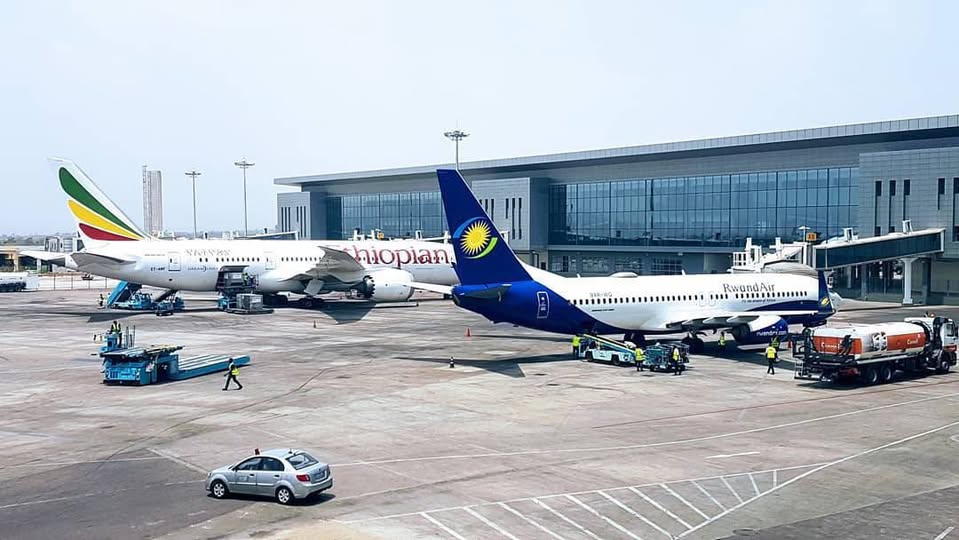
By Adedapo Adesanya
The Federal Airport Authority of Nigeria (FAAN) has unveiled 30 airport electric shuttle which will be used to complement airside and landside logistics.
The shuttle, which comprises 10 vehicles and 20 saloon cars, will cost N10,000 per passenger from the Nnamdi Azikiwe International Airport, Abuja to the City Centre.
Speaking at the event, the governing board chairman of FAAN, Mr Abdullahi Ganduje, said: “Electric vehicles offer clear operational and environmental benefits. They are cleaner, quieter and more energy-efficient, significantly reducing carbon emissions and helping FAAN minimise its ecological footprint. Their use will contribute to healthier airport environments and a more comfortable work and travel experience.
“From a logistics standpoint, electric vehicles also enhance monitoring, coordination and compliance. Their predictable performance and lower maintenance demands improve operational planning, accountability and service reliability. Ultimately, this translates into more efficient, transparent and passenger-friendly services.
“This initiative directly supports global sustainability targets, including International Civil Aviation Organisation’s goal of achieving net-zero carbon emissions by 2050. By embracing electric mobility, FAAN is positioning Nigerian airports to remain competitive, responsible and future-ready.”
Mr Ganduje pledged the commitment of the board to ensure that the initiative is utilised, maintained, and expanded to other airports in the country.
On her part, the managing director of FAAN, Mrs Olubunmi Kuku noted that the agency has secured approval to deploy 100 electric vehicles to operate as airport shuttles at Lagos and Abuja airports.
“We have secured approval to deploy 100 Electric Vehicles (EVs) to operate as airport shuttles at both Murtala Mohammed International Airport, Lagos, and Nnamdi Azikiwe International Airport, Abuja. It is a monumental step towards greening our operations and reducing our carbon footprint.”
“We proudly begin this journey with the first phase: the launch of these 10 state-of-the-art electric shuttle buses. They represent more than just transport; they symbolise cleaner air, quieter terminals, and a to pioneering sustainable infrastructure in Nigerian aviation”.
She expressed optimism that the initiative would be replicated across all airports in the country.
The head of Fleet Operations of Possible EVS, Mrs Abimbola Gyer while stating that the transport fare would be subsidised for passengers, added that operations would commence from 7am to 7pm daily.
“We partner with NEV Electric, the manufacturer of the electric buses. We would be moving passengers from the airport to the city centre at the rate of N10,000 and as demand continues, we will expand our hub. The operations will start from 7 a.m. to 7 p.m daily,” she noted.
-

 Feature/OPED6 years ago
Feature/OPED6 years agoDavos was Different this year
-
Travel/Tourism10 years ago
Lagos Seals Western Lodge Hotel In Ikorodu
-

 Showbiz3 years ago
Showbiz3 years agoEstranged Lover Releases Videos of Empress Njamah Bathing
-

 Banking8 years ago
Banking8 years agoSort Codes of GTBank Branches in Nigeria
-

 Economy3 years ago
Economy3 years agoSubsidy Removal: CNG at N130 Per Litre Cheaper Than Petrol—IPMAN
-

 Banking3 years ago
Banking3 years agoSort Codes of UBA Branches in Nigeria
-

 Banking3 years ago
Banking3 years agoFirst Bank Announces Planned Downtime
-

 Sports3 years ago
Sports3 years agoHighest Paid Nigerian Footballer – How Much Do Nigerian Footballers Earn




